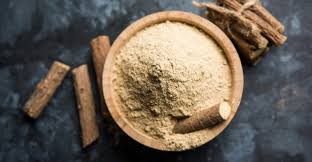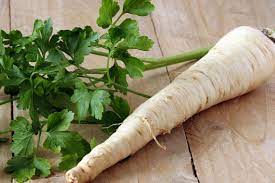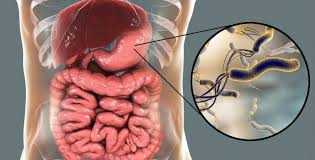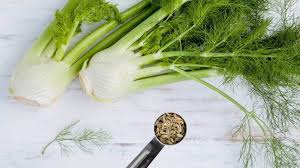Content of the Article
Licorice It is also known as 'sweet root' (as it contains a compound that makes sugar 50 times sweeter). This root has numerous health benefits. It can aid in cancer treatment, improve brain health, and aid in the treatment of diabetes. Licorice It also has anti-inflammatory and expectorant properties.
In the article "What does licorice root do, what is it good for", "does licorice root weaken", "what are the benefits of licorice root", "what are the harms of licorice root" Questions such as will be answered.
What Are the Benefits of Licorice Root?
Licorice It is primarily known for its ability to heal the gastrointestinal tract. Contains glycyrrhizin (contains the active compound in licorice root), a compound known to reduce cancer risk and inflammation.
Licorice Other important bioactive compounds in it help increase brain function and treat diabetes. The fiber found in the root can aid weight loss. Request the benefits and harms of licorice root...
It can improve gastrointestinal health
Licorice It can help treat conditions such as acid reflux. This is especially true for DGL or deglycritized licorice.
DGL is known to increase mucus production, and this protects the stomach lining from excess acid. DGL also helps relieve nausea and ulcers.
Root is also heartburn associated with GERD (gastroesophageal reflux disease), acid reflux and it can treat other symptoms such as vomiting.
LicoriceBecause it is an anti-inflammatory agent, it can also help treat stomach lesions. The root also speeds up the healing of the stomach lining.
May help treat cancer
An American study, licorice root and its derivatives may provide protection against DNA damage. At the root polyphenols it also induces cancer cell death.
Some research licorice root He states that it can help cancer patients maintain their quality of life better than chemotherapy.
The glycyrrhizin in the plant causes cancer cell death in prostate cancer. Studies reveal that it has therapeutic potential against prostate cancer.
May improve brain health
LicoriceThe glycyrrhizic acid in mice has been found to help treat neuroinflammation and cognitive impairment in mice.
Licorice Another compound in it called liquiritigenin has been found to have anti-inflammatory properties. As a result, it can help treat neuroinflammation associated with Alzheimer's.
Can help treat diabetes
LicoriceThe molecules in it have been found to have anti-diabetic properties in rat studies.
More interestingly, licorice extract The diabetic rats given experienced a decrease in their blood sugar levels. Licorice Several ingredients in it, namely glabridin and amorphrutine, were deemed responsible for this benefit.
Licorice can aid weight loss
One study, 3.5 grams per day mean showed that its intake can reduce body fat by 4%. Licorice It also contains fiber that can help a person feel full and reduce appetite.
Preliminary research also licorice rootIndicates that can reduce body fat mass. The root also has desirable effects on the thickness of body fat.
Studies also licorice root It has shown that supplementing with flavonoid oil can reduce total body fat and visceral fat in overweight individuals. Licorice tea It can also help reduce body fat, but this has yet to be proven.
May improve liver health
LicoriceIts anti-inflammatory properties have been found to protect the liver from alcohol-induced injuries. The root is known to improve the antioxidant defense in this situation.
Studies also licorice rootHe stated that non-alcoholic fatty liver disease can provide relief. It has also been found to have some therapeutic effects on other liver ailments such as jaundice.
Can fight inflammation
Licorice It is particularly effective in treating inflammation of the digestive system. Glycyrrhizin in the root prevents tissue inflammation by reducing the formation of reactive oxygen species.
Root protects against chronic inflammation and related conditions such as arthritis, according to mouse studies. also meanIt is believed to act like the body's natural corticosteroids (compounds that reduce inflammation).
It can relieve adrenal fatigue and other hormonal problems
Licorice, balancing hormonesye can help. The root is traditionally used to balance female hormones, thus alleviating the symptoms of premenstrual syndrome and menopause. Licorice flavonoids may have a beneficial estrogenic effect on human cells.
Licorice It is also used in herbal supplements specifically prescribed for the treatment of polycystic ovary syndrome or PCOS.
Strengthens immunity
LicoriceIt has antiviral and antimicrobial properties and these help strengthen immunity. Licorice Glycyrrhizin may stimulate immunity and help fight several viral infections, according to studies on ducklings. It can also prevent other bacterial and fungal infections.
Licorice It also plays a role in relieving cough and other ailments of the respiratory tract. It has expectorant properties. The root can also treat colds and throat acheIt soothes.
The root covers the throat with a thin film of mucus and protects the delicate tissues inside.
May increase male fertility
Studies licorice roothas shown that it can help treat erectile dysfunction. The root improves overall health at the cellular level. It also has beneficial effects on male hormonal levels.
An Italian study licorice rootIt states that it may decrease serum testosterone levels in men. For this purpose licorice root Talk to your doctor before using it.
Relieves symptoms of PMS and menopause
Licorice It relieves menstrual cramps. It can relieve spasms and pain. Some research indicates that it can help relieve hot flashes.
The herb has an estrogen-like effect in women, and this is menopause It helps relieve symptoms.
In a study, licorice roothas been found to be much better than hormone replacement therapy at reducing the duration of hot flashes.
Improves oral health
Researches, licorice rootthe nude tooth cavitiesIt has shown that it can reduce the disease and help treat other oral diseases such as caries and oral candidiasis. It also helps prevent periodontitis, a serious oral disease that damages gums, bones and tissues that protect teeth.
LicoriceIt is also known that naturally refreshes the breath. It can also prevent tooth decay.
Helps you sleep better
Studies on mice have shown that a called Glycyrrhiza glabra licorice root He states that the strain can trigger sleep and even increase sleep duration.
Licorice The other two compounds, glabrol and liquiritigenin, may also play a role in this. Ethanol extracts in root have been found to increase non-REM sleep length in mice.
Skin Benefits of Licorice Root
LicoriceIt has antiseptic, anti-inflammatory and soothing properties that help improve various skin conditions such as redness and inflammation. Licorice can lighten the skin.
According to anecdotal evidence, regular use of licorice It can help fade blemishes and dark spots.
LicoriceNude decoction can be used as a sunscreen lotion to protect the skin from sunburn and tanning. To treat sun damage, you can apply a mask prepared by mixing crushed cucumber in licorice tea.
Licorice Benefits for Hair
Research on this subject is limited. It is claimed that the flavonoids, phytoestrogens and other essential oils in the root can help improve hair health.
LicoriceIts soothing (anti-irritant) properties can help soothe scalp conditions such as dandruff.
Although not scientifically proven, licorice teais consumed by some people to combat premature hair loss.
Use of Licorice Root
As a gel or cream
It can be applied to the affected areas of the skin. Licorice powderYou can mix it with water and make a paste. Licorice gel you can also buy.
As powder
It can help treat skin conditions such as acne.
As a tincture
You can consume it by dropping it into 3 to 4 drops of fruit juice.
As tea
Put the root in boiling water and let it simmer for about 10 minutes. You can drink a cup before going to bed. You can also make tea with dried and crushed licorice leaves.
Licorice extract or extract
You can take these daily. Take according to the dosage indicated on the product label.
As a liquid extract
LicoriceIt is the most widely used form of.
As a potent drug
It can help treat Addison's disease (a type of diabetes caused by hormonal deficiency) and lupus (an inflammatory disease caused by the immune system that attacks the body's tissues). For this purpose, researches in this direction are limited. licorice root Talk to your doctor before using it.
What Are The Side Effects Of Licorice Root?
Prolonged consumption of licorice can cause adverse effects in some people. These are heart conditions, hypokalemia, kidney problems, sexual problems in men, and hypertension in children.
It can cause heart problems
The root can increase blood pressure levels. This can aggravate heart conditions. Those with a history of congestive heart failure should avoid using licorice root.
May cause hypokalemia
Extreme licorice purchase It can cause extremely low potassium levels in the body, leading to hypokalemia. Therefore, if you have low potassium levels, licorice root Avoid using it.
May cause kidney disease
In some cases, individuals with hypertension mean induced renal failure has been observed.
It can aggravate male sexual problems
Some studies licorice rootshows that it can reduce testosterone levels in men.
May cause hormonal imbalances
LicoriceSince it can act as estrogen in the body, it should be avoided if there is a condition that could be worsened by estrogen. Licoricecontains a compound called isoliquiritigenin, which can interfere with sex hormones in the ovaries and disrupt their production.
Pregnancy and breastfeeding problems
Licorice It is unsafe during pregnancy and can lead to premature birth. Licorice The glycyrrhizin in it has been found to be associated with preterm delivery. Therefore, pregnant women licorice root it is recommended not to use it.
While breastfeeding licorice rootThere is not enough information about the effects of. Therefore, it should not be used during breastfeeding.
Problems during surgery
As the root can interfere with blood pressure, it can cause problems during surgery. At least two weeks before a planned surgery licorice root stop the reception.
What Is Licorice Root Nutritional Value?
The root consists of carbohydrates (starch and sugars such as glucose, fructose and sucrose), minerals, and bioactive plant compounds. It also contains both soluble and insoluble fibers.
Licorice The most important bioactive ingredients are:
- Glycyrrhizin, also called glycyrrhizic acid, is the most abundant compound in licorice root (3%) and extracts (10-25%).
- Liquiritigenin, another important antioxidant and a phytoestrogen.
- Other important compounds include glabridin and liquiritin.
What Is The Recommended Dosage Of Licorice Root?
Licorice The ideal dosage depends on the health condition of the individual. However, never take excessive amounts in food or supplement form. licorice root should not be consumed.
Licorice Extract Limit your intake to four weeks. Deglycyrrhizinated licorice can be taken longer. Direct research is lacking in this regard, so consult your doctor for more information.
Drug interactions
Warfarin (Coumadin), a blood thinner licorice root It may interact with and cause gastrointestinal bleeding. Patients at risk of bleeding licorice root and should avoid the consumption of supplements. People taking medication for heart rhythm problems licorice root it is recommended not to use it.
Licoricehas interacted with a variety of medications, including:
Blood pressure medications
Blood thinners
Cholesterol-lowering drugs, including statins
Diuretics
Estrogen-based contraceptives
Nonsteroidal anti-inflammatory drugs (NSAIDs)
People taking any of these medicines, unless their healthcare professional states otherwise licorice productsshould avoid.
As a result;
Licorice It is a plant with significant health benefits. This medicinal root is commonly used to treat ailments related to the digestive and nervous systems and skin.
However, consuming too much of this root can cause serious side effects. Therefore, one should consult a doctor first.











